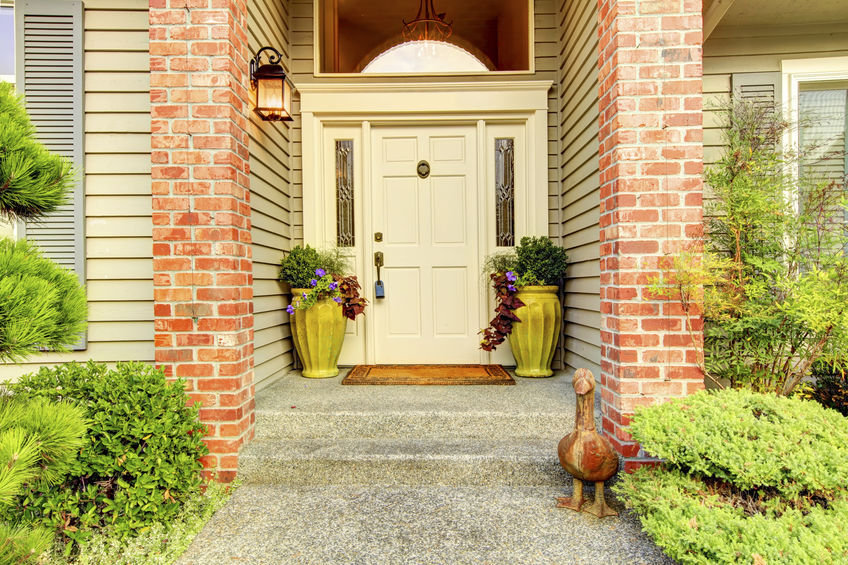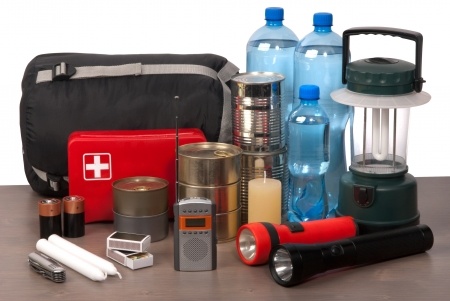Essential Home Safety Tips
Essential home safety tips. Your home is your family's haven. It's where you return to each evening, leaving your workday worries - and the outside world - behind once you secure the front door.
While your walls provide a safe refuge within which you can weather the storms of daily life, ensuring your family's physical safety while inside requires extra precautions.
These include creating a first-aid and disaster-survival kit and installing detectors to alert you to fire and other hazards.
These simple security measures will prepare your family and your home for whatever big and little surprises life and nature throw your way.
You don't need to spend a bundle to keep your home safe from environmental and artificial hazards. All it takes is knowledge of what can go wrong and a few simple steps to prepare yourself. These home safety tips can help.
Essential Home Safety Tips
Because accidents happen, you'll want to be prepared to treat scrapes, burns, bites, and other minor and major mishaps that may occur at home.
These essential home safety tips for creating a first aid kit can help. A prepackaged first-aid kit is the simplest solution; these come stocked with all the bandages, tools, and antiseptic wipes you need.
But it might be less expensive to create your kit. Make sure you have the following essentials in your medicine chest:
- adhesive bandage strips
- gauze pads
- sterile cotton balls
- antiseptic wipes (or an antiseptic solution)
- a chemical-activated instant cold pack
- eyewash
- blunt-tipped scissors
- tweezers
- a thermometer
- cotton swabs
- and activated charcoal and syrup of ipecac in case of poisoning.
Essential Home Safety Tips for Fire and Smoke
Because the toxic gases from a fire could keep you from waking up should a fire ignite while you're sleeping, maintaining working smoke detectors for every level of your home is necessary.
Install detectors on the ceiling (smoke rises) in every bedroom and outside bedroom doors, at the top of stairways, and in any den or office in the basement.
Test the devices monthly and replace the batteries at least once a year.
Fire extinguishers should also be kept on each floor, in every bedroom, and in any room where a fire could occur, such as the kitchen or a workshop. Check fire extinguishers monthly—they could prevent a small mishap from becoming a disaster.
Another safety must-have is a carbon-monoxide detector. This deadly, colorless, odorless gas is becoming a threat in more and more of today's energy-efficient and air-tight homes.
The source of carbon monoxide is usually faulty combustion or poor venting of a furnace or other appliance.
Your first defense is to maintain these items properly. Carbon monoxide detectors, which resemble smoke alarms, are an essential backup.
Asbestos and Lead Paint Safety
If your home was built before 1978, it might contain asbestos around furnaces, pipes, heat ducts, and boilers; in the adhesive and backing beneath your linoleum floor, and in "cottage-cheese" ceilings.
The dust of this carcinogen can cause severe lung ailments when inhaled.
If the asbestos is in your garage near the furnace and you rarely go there, you should be aware of it and regularly check its condition. Asbestos generally is not a problem unless it's disturbed (by a leak in the roof or a child's bouncing ball, for example).
If it's crumbling or otherwise in poor condition, hire a licensed contractor experienced in asbestos removal to seal it, repair it, or remove it from your home.
Lead paint, commonly found in homes built before 1980, can escape during cleaning.
If enough of this substance is ingested or inhaled, it can cause permanent brain damage and other serious harm, especially to children, mothers-to-be, and older adults.
If you live in an older home, consider hiring a trained professional to conduct a hazard assessment.
To check for lead yourself, chip off some suspect paint - right down to the bare wood - and then send it to a laboratory for analysis or buy an inexpensive test kit.
If you find lead paint, cover the area with wallpaper, paneling, or new lead-free paint, and frequently wash children's hands and faces, toys, and pacifiers to reduce their exposure to dust containing lead.
Once tainted surfaces are covered, they are considered safe unless they chip or peel.
Heading Off Disaster
Heading off disaster. While they may never happen to you, fires, floods, earthquakes, tornadoes, hurricanes, and other catastrophes strike millions of householders yearly, so it's only prudent to prepare for them.
Assembling a disaster kit should be a top priority. Your kit should contain enough supplies to see your family through at least three days without essential services.
While you can buy emergency kits, creating your own is more straightforward and less expensive. These home safety tips can help:
Start with a few basics:
- drinking water (about 1/2 gallon [approximately 2L] per person daily),
- canned or dried food,
- can opener,
- gas stove,
- current family photos (to help find family members who are missing),
- flashlights and radio with spare batteries,
- lantern,
- heavy-duty work gloves,
- candles, matches, and first-aid kit.
You should also include flares or an alarm to summon emergency crews, a personal commode with sanitary bags, a tarp, and several sturdy plastic lawn-and-leaf bags.
Essential home safety tips: a crowbar and shovel are helpful if you must work your way to a family member trapped by fallen objects.
You should also stash enough cash for several days, as banks and automated teller machines may be shut down.
If you have an infant, stock up on formula, diapers, and baby wipes. And if a family member requires medication, make sure you have a current supply on hand.
Remember to bring food, water, and a leash or cage for pets. Store these supplies in a duffel bag or backpack that you can easily carry should you evacuate.
Keep all items that don't fit in the bag, such as water containers, where they're easy to reach in a hurry.
To the top of your kit, tape a "Don't Forget" list of last-minute items to take, including an extra pair of glasses, essential documents, and keepsakes.
When Mother Nature unleashes her most active elements, you're at her mercy. Still, with just a bit of preparation, you can easily keep your family—and your home—safe from environmental and artificial hazards.
These essential home safety tips can help.
- Clean Home
- Safe at Home
- Essential Home Safety Tips























